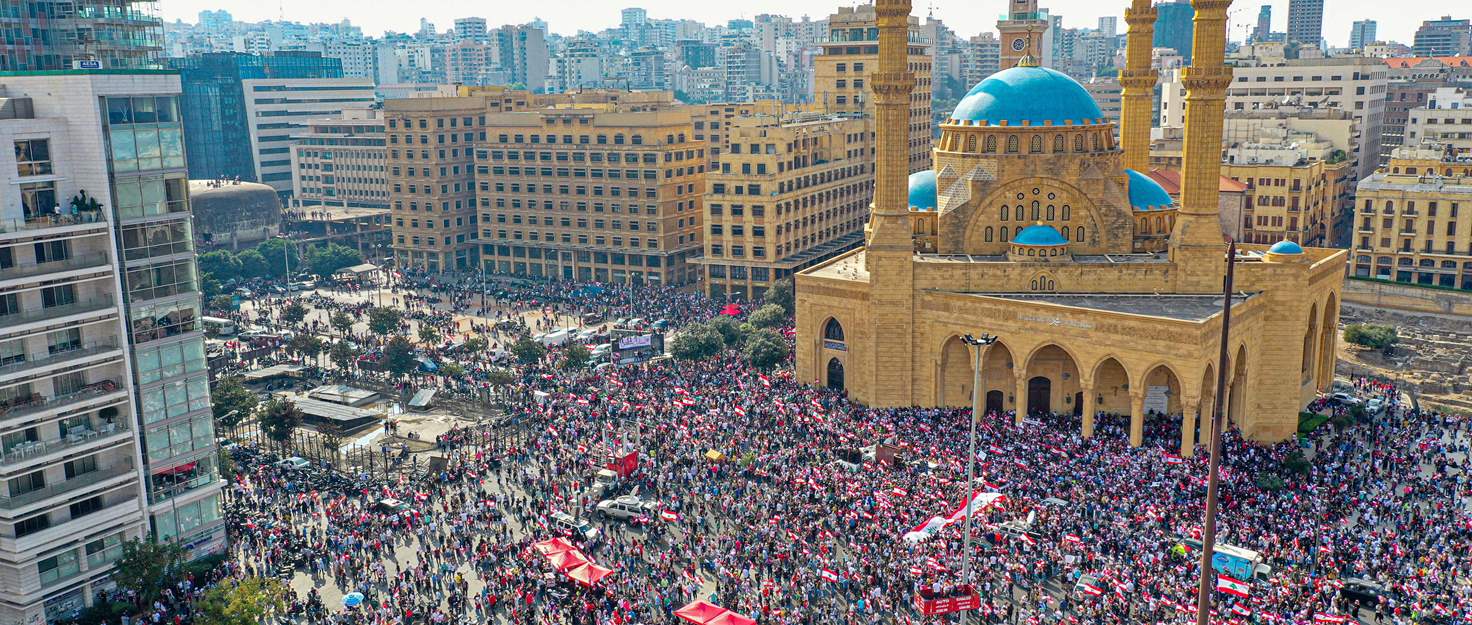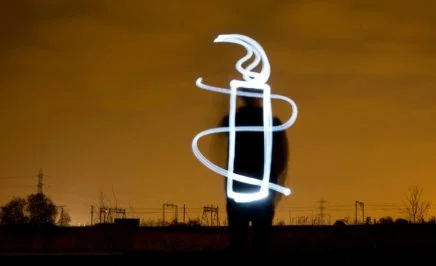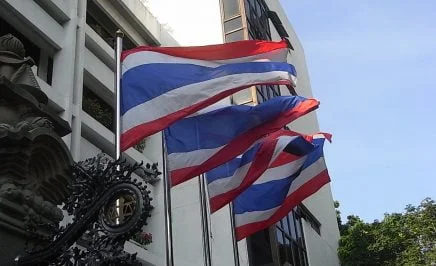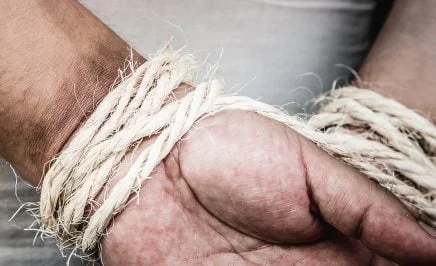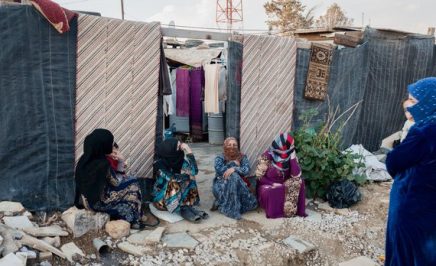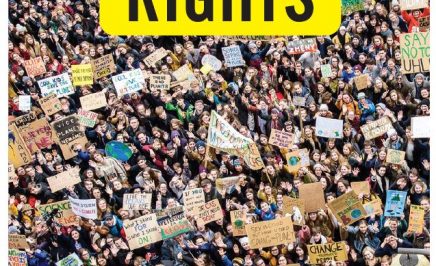Mass demonstrations
Mass protests swept across Lebanon shortly after the government announced new tax measures on 17 October. In unprecedented scenes tens of thousands of peaceful protesters from different religious and class sectors of society assembled in cities across the country accusing the political leadership of corruption and calling for social and economic reforms.
Waving the Lebanese flag, the crowds chanted demands for the “fall of the regime” many of them repeating the slogan “all of them means all of them” – a reference to key ruling figures from a variety of religious sects who have dominated the Lebanese political scene for decades.
Underlying frustration with the government and the political elite had been accumulating for years. Public anger has escalated in recent years over electricity and water shortages, as well as the government’s failure to manage the country’s waste and economic crises.
Despite government attempts to placate the protesters with announced reforms, demonstrations continued in Beirut, Tripoli, Zouk, Jal el Dib, Saida, Nabatieh, Sour and Zahle. On the 13th day of the protests, Prime Minister Saad Hariri announced his resignation.
PROTESTERS ARE MAKING THEIR VOICES HEARD IN A PEACEFUL MANNER – THE AUTHORITIES HAVE AN OBLIGATION TO PROTECT THIS RIGHT
Lynn Maalouf, Amnesty International

Across Lebanon, protesters blocked main roads as part of their peaceful assembly. – © PATRICK BAZ/AFP via Getty Images

Army officers resorted to the excessive use of force to disperse peaceful protesters without justification – ©ANWAR AMRO/AFP via Getty Images

Protesters have come under attack from supporters of ruling political groups Amal and Hezbollah who chased demonstrators, beat them with sticks and set fire to their tents – © AFP via Getty Images

Women have been leading demonstrations demanding economic and social justice for all, including migrant domestic workers and LGBTI communities. Feminist calls included equal rights to custody and nationality. – ©Ahmad Abu Salem
Legitimate roadblocks
Across Lebanon protesters blocked main roads as part of their peaceful protest. The right of peaceful protesters to demonstrate on and block public roads has consistently been upheld by international human rights bodies which view urban spaces as a legitimate space for protest. The UN Special Rapporteur on Freedom of Peaceful Assembly and Association has stated that “the free flow of traffic should not automatically take precedence over freedom of peaceful assembly.”
Key protester demands
Some of the key demands of protesters based on chants made during demonstrations and analysis by the Issam Fares Institute for Public Policy and International Affairs at the American University of Beirut include:
- An end to government corruption
- An end to the sectarian political system
- The recovery of stolen funds and holding the corrupt accountable
- Fair tax and financial procedures

Violations by the authorities
Failure to protect peaceful protesters
Amnesty International has documented how on a number of occasions Lebanese security forces failed to effectively intervene to protect protesters when they came under attack by supporters of the ruling parties Hezbollah and Amal.
On the 18 October in the southern city of Sour, eyewitnesses said army officers allowed visibly armed supporters of the Amal movement to assault peaceful protesters. In the southern city of Nabatiyyeh on 23 October, dozens of men armed with sticks and batons stormed a sit in beating protesters and dispersing them.
Days later on 29 October Lebanese security forces failed to adequately intervene when Amal and Hezbollah supporters beat and chased demonstrators and set fire to their tents at the Ring Highway in Beirut.
Members of the armed forces have a duty to ensure that the right to peaceful protest is upheld and that includes protecting peaceful demonstrators from coming under attack from rival protesters.
THEY BEGAN TO BEAT PROTESTERS WITH STICKS AND PUSH US, THEY TRIED TO BEAT ME… THERE WERE SECURITY FORCES THERE, BUT THEY STOOD ON THE SIDELINES
Fatima, a teacher from Nabatiyeh
Excessive use of force
The protests across Lebanon have been overwhelmingly peaceful and the response from army and security forces has been largely restrained. However, Amnesty International has documented incidents of excessive use of force, including in one incident, the use of live ammunition against peaceful protesters.
On 18 October in downtown Beirut, shortly after the speech of Prime Minister Hariri, security forces used excessive force to disperse protesters firing huge amounts of tear gas into crowds and chasing protesters down streets and alleys at gunpoint and beating them.
On 23 October officers from the Lebanese army and army intelligence resorted to excessive force in seeking to disperse protesters who had blocked the main Awwali highway in the southern city of Saida. Officers armed with riot shields forcibly removed protesters who sat on the ground with their arms raised as a peaceful sign, carrying them away away and handcuffing them. They also kicked and beat protesters with iron batons as well as verbally assaulting them.
In the most violent episode since the protests began, the army opened fire against dozens of protesters staging a sit-in the Beddawi area of Tripoli in north Lebanon on 26 October. Soldiers attempting to clear a road began to beat the protesters who responded by throwing stones at them. The soldiers then opened fire using live ammunition seriously wounding at least two protesters. Four people were unlawfully detained for six days by the military before being released. Their whereabouts were unknown and they were denied access to their lawyers and family, amounting to possible enforced disappearance under international law.
I saw him aiming at me while I threw stones and said don’t shoot! I’ll stop throwing the stones… but he shot me four times in the stomach
Mohammed al-Abdallah, protester shot in the stomach in Beddawi

